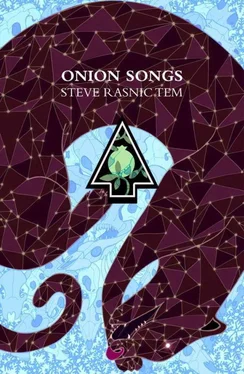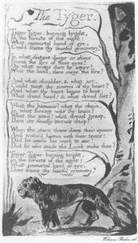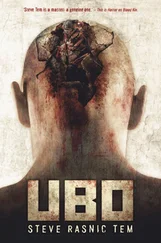I have never been able to say why I let them keep me that first night. Dr. Zachary brings the issue up from time to time in the morning conferences. “Just why do you suppose Mr. Lippmann allowed us to keep him that first night forty years ago?” he asks the group of young doctors. “No one forced him. The legal criteria had not been met.” But of course the legal criteria were met soon thereafter. Dr. Zachary has a talent for collecting all the required signatures. “So why did Mr. Lippmann acquiesce?”
No one has ever given a satisfactory answer. Some students propose theories and other students shoot them down. They cannot imagine themselves doing the same. Why would any mentally competent person do such a thing? I certainly have no answer, and perhaps that ignorance is what keeps me here. That mystery. To contain mysteries is a dangerous thing. There are those who will lock you up for that alone.
I’ve never been informed as to the final disposition of Roger Ellison’s belongings. Perhaps my former roommate and friend has them. Or had them; it has been forty years, after all. Or the authorities may have donated them to the poor.
Or perhaps Dr. Zachary has had them in his possession all this time. Perhaps there was something in Roger’s room he needed, was afraid to have revealed, or required for his research. Perhaps my old roommate had a hand in this as well.
All these theories are, of course, paranoid, whether true or not. So are best left unvoiced. They, too, can result in one’s confinement.
Over the years I have had my supporters among the new class of doctors. They usually come forward around the fifth or sixth week. “It’s hard to believe that a man of Mr. Lippmann’s insight, warmth, and intelligence has a serious mental problem, particularly one that would require such a lengthy hospitalization. He’s much better adjusted than most of us would be in his situation, Dr. Zachary.”
That came early this morning, from a short, bespectacled, blond youth. He had struck me from the first as an unusually sensitive type. Some of the students nodded slightly, as if they had been waiting for someone to express that opinion. Others focused their attention immediately on Dr. Zachary.
It is odd how every year this one issue is construed by the students, and worried over, as a direct challenge to Zachary’s theories and methods. Even if it were so, he never seems to take it as a serious rebuff.
“Does intelligence make one immune to mental illness? Does penetrating insight? Does warmth? Think on this proposition: some might say that those qualities actually make imbalance a more likely occurrence.”
I find myself siding with Dr. Zachary, even when it’s my own condition we are discussing. Without stating his propositions as his own, he proposes quite clearly. And it is hard to believe that what he proposes could be wrong.
At the end of the conference he turned, and smiled his smile my way. “You’re a difficult case, Lippmann. We’ll discover the nature of your illness yet. Even if it requires another forty years.”
As the patient care conference breaks up I head back to my room on the tenth floor, riding the elevator that should have been a merry-go-round. It is visitation day. There are children in the halls, wives, husbands, relatives. But it is the children who are most noticeable, racing into open elevators and pushing buttons at random, squealing as the elevator that should have been a merry-go-round makes its many unnecessary stops.
By the time we reach the fifth floor my breathing is ragged. By the time we reach the tenth the tears are leaking out of my eyes. As I struggle to open my door with the worn-out key the sobs fill my throat and spill out over my palsied hands. Embarrassed, I push the door open jerkily, ushering my sobs inside.
You would think Roger Ellison would have had some relatives with small children. They form my only pool of potential visitors, and yet none of them has ever come. But I feel sure they must have been informed of my existence, by the police if not by Dr. Zachary himself.
Ellison’s death had a profound effect on me. I was stirred by such compassion for this crawling, pitiful suicide. I could not have refused a last request.
Dr. Zachary must have been quite upset at losing a patient.
I cry for a very long time in the darkening room, terrified that someone might overhear me. When the doorknob rattles and the lock clicks I am not surprised to see Dr. Zachary standing in my entranceway.
“Why are you so unhappy, Mr. Lippmann?”
“What’s there to be happy about, Dr. Zachary? I have no family, no friends.”
“I am your friend, Mr. Lippmann. Even if I’m your only one.”
I turn and gaze at him, suddenly feeling sorry, for him, for Dr. Zachary. “I know, Dr. Zachary. And I am your only friend.”
“You’re depressed, Mr. Lippmann. You have delusions of grandeur.”
“I am unhappy , Dr. Zachary. Wouldn’t you be?”
“You could have left a long time ago, at the first, when it all started.”
“Perhaps. Perhaps.” But he has already left. I can hear him walking down the corridor. To the elevator.
Which should have been … a Ferris wheel . A Ferris wheel. Not a merry-go-round. Is that why he has kept me here all these years? A glitch in my thoughts. A misfired neuron. A palsy that made me say “merry-go-round” when all the time I was envisioning a Ferris wheel. One foul piece demonstrating that the entire mind was souring. So here is Dr. Zachary’s secret evidence of my insanity.
When patient care conferences begin in the morning I will have the answers to all of Dr. Zachary’s elliptical questions. The other students will be quite impressed. At last we have concrete verification of Lippmann’s illness. Now a course of treatment can begin.
How strange it is to stare into the mirror and find that the one staring back at you is not at all whom you expected.
Sometimes I think that toward the end of my life I will become an old green dog.
Not that the dog would ever understand he was green. Like most dogs, he had a difficult time distinguishing among yellow and orange and green, or even red, not to mention the difficulty a dog has finding a reasonable mirror. A dog will find its mirror in his master’s eyes, we hear—but all too often what he finds there is small and miserable.
* * *
The dog didn’t remember that, as a boy in high school, it had known a girl whose peroxide-bleached hair had turned this same shade of green in the swimming pool. The girl’s hair had eventually gone back to auburn, but this was the dog’s natural color.
Canine greenness being a rarity, the dog was regarded with delight and distaste, wariness and incredulity. Other animals didn’t pay much attention to his color, for he smelled like a dog, made dog sounds, marked his territory like a dog, fought like a dog over scraps of food and places in the sun. But people noticed. A few took his pigmentation as an excuse to throw things at him, some of which hurt, some of which he caught in his mouth and determined to be edible. A few others tried to entice him closer, and once in a while the prospect of having his ears scratched outweighed both his street-wise caution and his dislike of being inspected. Most, though, kept their distance, thinking him an aberration of nature or their own minds, or his color a symptom of some dreaded and contagious disease.
This dog was lucky enough to have neither master nor mirror. If he’d had a mirror, and if mirrors made any sense to dogs, he’d have more or less expected to see an older man going to fat and gray, going to invisibility as his eyes faded and his voice grew weaker, and even though he had gained weight steadily through his middle years, he’d have seemed less substantial, as expansive as a cloud and no more significant in the great span of eternity. Then had come that too warm, too humid morning when he woke up as a dog.
Читать дальше












